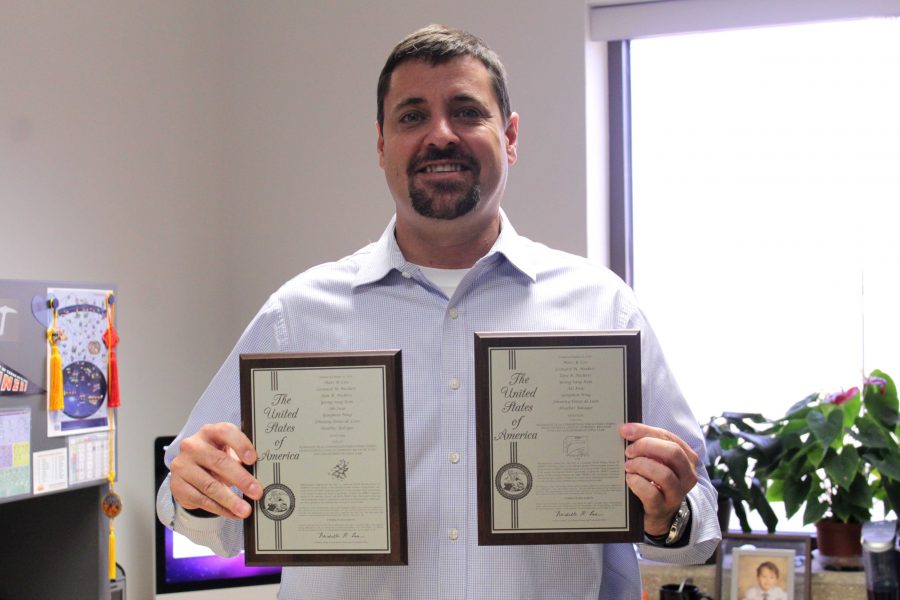The Intellectual Property Committee of the State Bar of Texas awarded the 2016 Texas Inventor of the Year to Marc Cox, Ph.D., associate professor at the University of Texas at El Paso’s Department of Biological Sciences.
The prestigious award was given to Cox for his research concerning new methods of attacking breast and prostate cancer. He is the first faculty member from UTEP to receive this award.
“It is less about me and more about the bigger picture of UTEP and UTEP having success,” Cox said. “Awards like this give strong validation to UTEP’s progress and research.”
Since prostate and breast cancer often occur as result of the body’s own hormones, many of the treatments consist of therapies that include hormone-blocking agents.
According to Cox, one of the problems seen with these specific types of cancer is because of its progressive forms. The cancer may learn from current treatments and evolve to more aggressive forms that can no longer be treated with the same kind of therapies.
This is where Cox’s research comes in. He is focused on finding new strategies for targeting hormones, which can help stop the development of new aggressive forms of breast and prostate cancer.
“In cases of breast and prostate cancer, the major treatments are cutting off the hormone supply to the tumors because the hormones drive tumor growth,” Cox said. “The goal in my lab is to try to develop novel strategies for targeting the hormones signaling pathways in breast and prostate cancer.”
Cox developed drug candidates focused on androgen receptor signaling, a process critical to these cancers’ growth. The drugs target a protein that disrupts the process. He based the logic and strategy on the treatment of other diseases such as diabetes and stress.
“In many cases, altering the body in response to hormone signaling can be a beneficial treatment for a wide variety of diseases such as diabetes, obesity, stress, metabolic syndrome, among others,” said Cox, referring to the logic his lab has used for over 15 years.
Cox’s research has resulted in six patents for drugs to treat breast and prostate cancer that are currently pending and issued. Preliminary findings point toward the development of more effective drugs that will probably show efficacy in the treatment of these cancers, either alone or in combination with other types of therapies.
Cox is working with scientists from the National Institute of Health, Texas Southern University, Clark Atlante University and the University of Colorado.
Cox gives credit to the Office of technology Commercialization and its director Melissa Silberstein for the award. Not only did Silberstein nominate Cox for the award, but the office assists the university’s scientists with aspects outside of research.
“The office has a lot of success in this actually. They have really gotten organized for the last few years and they are doing a great job at supporting us…We scientists are not trained for property protection, commercialization or business; we are trained as scientists, and so often times the idea of patenting something or the idea of starting a company or things like that are just scary for us,” Cox said. “With this office, you can get educated in those areas, you can have information, everything, so without this office and Melissa, none of this would have been possible for me.”
Cox emphasized the fact that this award is important to the university as a whole not just him. Personally, the award will help him advertise his work and provide exposure to his technologies, but it also spotlights the university and the work other UTEP researchers are doing.
“UTEP has made great progress in supporting research. I am not the only one around here doing great research and patenting, I just happened to get the award,” Cox said. “In reality, it is really an award for all of us because it makes UTEP look good, it advertises us for the community and shows that we are doing a great work out here in the community.”
Grecia Sanchez may be reached at [email protected]










